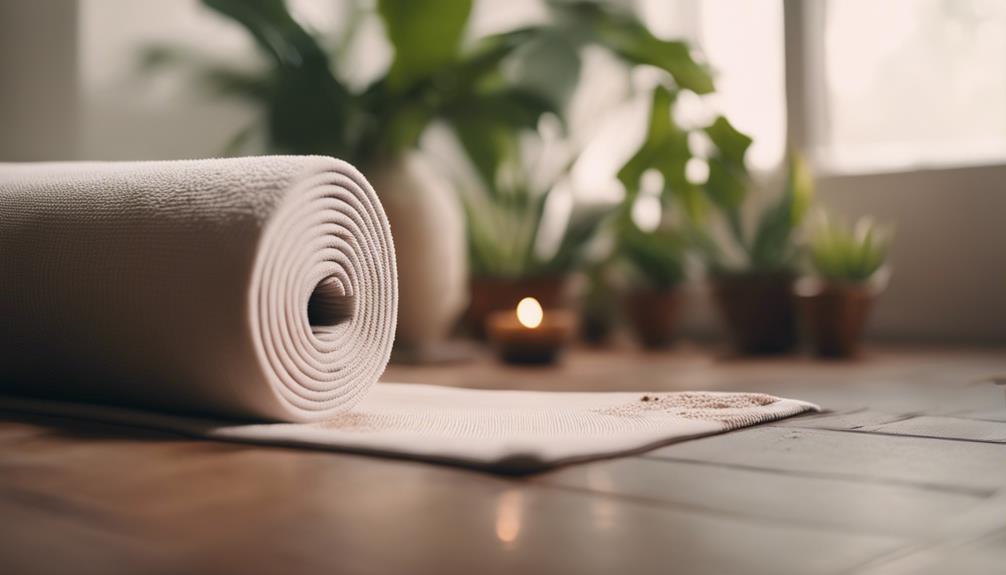A person practicing yoga or meditation to represent coping strategies is a powerful image that resonates with many in today’s fast-paced world. As stress and anxiety become common companions in our daily lives, finding effective coping mechanisms is crucial for maintaining mental well-being. Both yoga and meditation offer profound benefits that not only help in alleviating stress but also enhance overall quality of life. In this article, we will explore how these mindful practices can serve as effective coping strategies, guiding individuals towards peace and tranquility.
Breathe In, Breathe Out: Finding Peace Through Yoga Bliss
Yoga is more than just a physical exercise; it is a holistic approach to improving both body and mind. When a person practices yoga, they engage in a series of postures and breathing techniques that promote relaxation and mindfulness. This combination creates an environment where individuals can let go of their worries and ground themselves in the present moment. The rhythmic flow of breath and movement acts as a powerful coping strategy, helping to alleviate anxiety and foster emotional resilience.
The beauty of yoga lies in its adaptability. Whether you’re a beginner or a seasoned practitioner, there is always a style of yoga that suits your needs. From the gentle stretches of Hatha yoga to the more dynamic flows of Vinyasa, each practice offers a unique way to connect with oneself. As a person practicing yoga becomes more attuned to their body, they also develop a deeper understanding of their thoughts and feelings, transforming distress into awareness. This practice not only allows for physical exercise but also serves as a sanctuary for mental rejuvenation.
Moreover, yoga encourages a community spirit through group classes or online sessions, fostering connections with others who share similar goals of wellness and peace. Engaging in yoga as a collective experience can amplify the benefits of this practice, creating an atmosphere of support and motivation. Through this shared journey, individuals can discover new coping strategies from each other, enriching their personal practice. Ultimately, yoga becomes a joyful and nurturing space where the burdens of life can be released, making way for vitality and joy.
Mindful Moments: Embracing Meditation as a Coping Companion
Meditation, often viewed as a serene escape from the chaos of daily life, serves as an invaluable coping strategy for many. When a person practices meditation, they embark on a journey inward, fostering a deeper connection with their thoughts and emotions. This practice invites individuals to pause and simply be, allowing for a moment of reflection that can lead to significant insights and clarity amid confusion. By focusing on the breath or utilizing guided imagery, meditation creates a sanctuary for the mind, enabling individuals to navigate challenges with greater ease.
One of the most remarkable aspects of meditation is its universality – it can be practiced anywhere, anytime. Whether in a quiet corner of your home or amidst the hustle and bustle of a busy park, a few minutes of meditation can dramatically shift one’s perspective. This accessibility makes meditation a practical coping strategy for individuals seeking solace in their hectic routines. It offers a quick reset, allowing for a gentle shift in mindset that can transform a stressful situation into a manageable one.
In addition to its immediate benefits, regular meditation practice cultivates long-term resilience. Individuals who commit to meditating often report enhanced emotional stability and improved focus, equipping them with the tools to handle life’s ups and downs. As a person practicing meditation develops these skills, they forge a profound relationship with their mental health, allowing them to respond to adversity with calmness and clarity. Ultimately, meditation becomes a cherished companion in the journey of self-discovery, providing comfort and strength when it is needed most.
In conclusion, a person practicing yoga or meditation to represent coping strategies embodies the essence of resilience and self-care in today’s world. Both practices offer transformative benefits, enabling individuals to navigate the complexities of life with grace and ease. By incorporating yoga and meditation into their daily routines, people can cultivate a sense of peace and well-being, ultimately enriching their lives. Embrace these mindful practices and discover the calming oasis they can create amidst the chaos, allowing you to thrive with joy and purpose.
